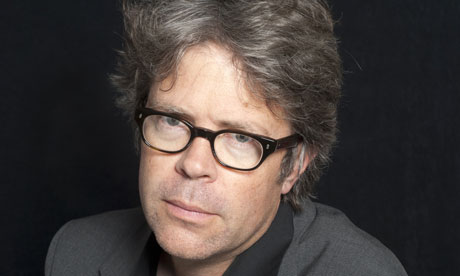
Jonathan Franzen recently reentered the public sphere with a jeremiad about the evils of self-promotion and that great 21st-century Moloch—the Internet. And he did so on the Guardian’s website with a 6,500-word promotional piece from his upcoming book. So remember when Kim Kardashian complained to her trusty cameraman—who was filming her Pilates class—that the paparazzi were so intrusive that she couldn’t attend a simple Pilates class without being caught on tape. Yeah, Franzen’s piece is kind of like that but with fewer single leg stretches. He’s incapable of admitting that he’s part of the very machine he’s criticizing.
Franzen—with his horned-rim glasses and punch-me smirk—appears to believe he inhabits some parallel economy untethered to the modern world. Adam Smith’s invisible hand apparently can’t reach Santa Cruz, CA. Who knew? Although he bemoans the passing of an age in which real writers didn’t have to self-publicize and were left alone to contemplate mortality and screw undergraduates, he doesn’t seem to understand that (a) this reality only existed for a very small segment of the literary world (i.e., a very white and very male segment) and (b) that it was brought about by the same forces of capitalist development that he abhors.
I may be a hardened lefty, but I do know that you don’t become a wealthy author because independent bookstores hand-sell copies of your work to eager, bespeckled readers of The Paris Review. You become a wealthy author because a publicity team at Farrar Straus Giroux funnels millions of copies of The Corrections and Freedom to big box chains who sell them at discounts that pummel the independent bookstores, leaving little shelf space for other deserving authors whose race or gender disqualifies them from becoming “the face of literary greatness.” So Franzen isn’t some quasi-socialist saint speaking truth to power. He’s an IKEA couch. Continue reading “Dear Mr. Franzen, Twitter Isn’t the Problem”

